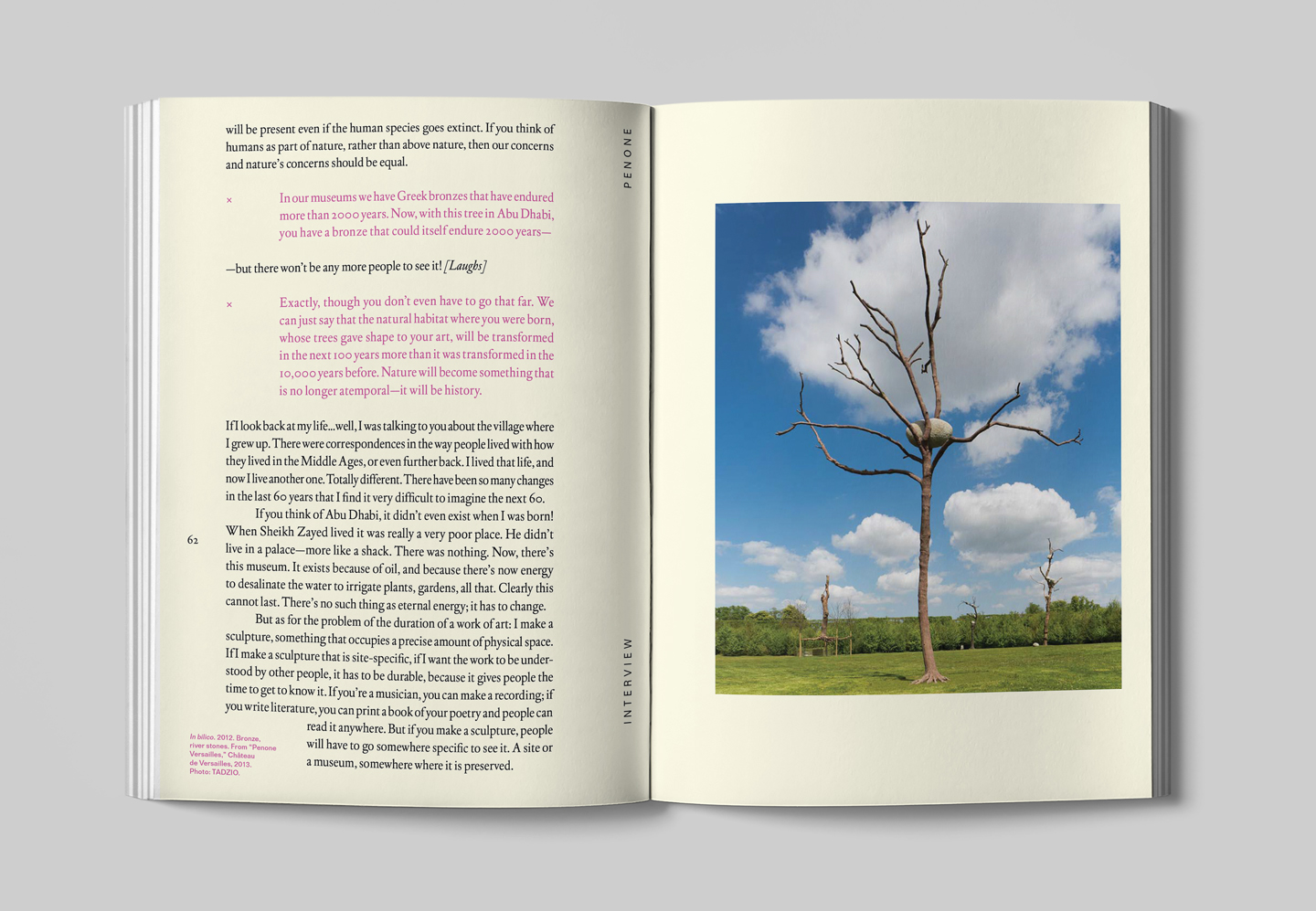An interview with Giuseppe Penone

I wonder: at this late stage of your career, do you have the sense that you are still making works in a world where conventions are in question, or do you have the luxury to remove yourself from what’s going on?
No, I don’t have that luxury. Everything happening in the world touches you, obviously. The problem is different: once your style of thinking is established — and that happens when you’re young — it becomes very hard to change it when you’re older. The only thing to do is to hold onto the authenticity of the principle of your vision. After that, it’s young people who will best understand what’s going on.
In Italy today, we are living through an epochal episode of migration. At a scale we have never seen before. You can’t not think about it, as an artist, but as for myself, I’m against the idea of using the suffering of others for one’s own aims. Even taking photographs is tricky, if you sell them. It’s something that bothers me very much. You can say that it allows us to see this suffering, yes, but the artist has an advantage: he earns money. It’s that discrepancy that you see in what is sometimes called socially engaged art that bothers me profoundly. Artists’ investigations have to take suffering into account, but art has to be an investigation that is also a language, an expression of certain content. If the content is right, that is also a political position.
I want to ask you about your new work at the Louvre Abu Dhabi: a tree that has steel mirrors sitting in its branches.
Reflective mirrors. I did a first drawing for it as early as 1968: a tree with stones placed in the branches. When they asked me to do a work for the Louvre, I spoke to Jean Nouvel [the architect of Louvre Abu Dhabi] and looked at his designs; the roof is a little like the canopy of a forest. So this bronze tree enters into a dialogue with the light that rains down from the architecture. The tree becomes the link between the ground and the canopy.
But still, Giuseppe, it’s a tree in the middle of the desert! When I think about Abu Dhabi, this city that grew from nothing, I immediately think about climate change, about the earth as our common heritage... How much do ecological questions inform your recent work?
I’m certainly very happy people are working on climate change. But if you look at the climate more broadly, you can consider that this fear is ultimately a fear of human survival. It’s not about the survival of the planet, or of nature. What is nature? Nature is whatever is outside; nature will be present even if the human species goes extinct. If you think of humans as part of nature, rather than above nature, then our concerns and nature’s concerns should be equal.